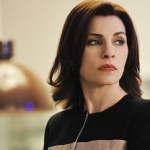When it comes to delivering outstanding performances on a weekly basis, few have mastered it as confidently and assuredly as the six women listed below. This stands as an even more incredible feat when you consider that all six of these characters went to pretty dark places in their respective seasons, from manipulating a personal tragedy for political gain to struggling with the grief of losing a loved one, and the darker the trails blazed, the more fascinating these women became.
All right, let’s get to it. Here they are, the talented women who fill up my Dream Emmy Ballot for Lead Actress in a Drama Series!
Lizzy Caplan, Julianna Margulies,
Masters of Sex The Good Wife
Tatiana Maslany, Keri Russell,
Orphan Black The Americans
Kerry Washington, Robin Wright,
Scandal House of Cards
Honorable Mentions: Diane Kruger, The Bridge; Michelle Dockery, Downton Abbey
“Show your work…”
Last year’s two breakout performances, Tatiana Maslany and Keri Russell, deserve recognition for their roles in the mind-bending Orphan Black and the powder keg drama of The Americans, if nothing else, because both women masterfully embody multiple characters. As with her on-screen husband Matthew Rhys, Russell must make it clear that her character Elizabeth Jennings does the acting when it comes to meeting assets or exploiting desperate romantics in the name of gathering clandestine intelligence. But what fascinates about Russell is the way she maintains Elizabeth’s focused sense of purpose and refusal to allow American beliefs and material goods to bastardize her own Soviet identity. The contrast between her stoic certainty and Phillip’s conflicting opinions generates an interesting undercurrent in their marriage that adds further depth to this already fascinating portrait. Oh, and homegirl can kick some serious tukus and looks mighty good doing it, her physical deftness revealing still another facet of Elizabeth Jennings. Maslany, meanwhile, has the challenging job of playing multiple cloned versions of herself and creating distinctive personalities for each. Miraculously, she does, and we almost forget it’s Maslany playing Beth and Sarah and Katya and Allison and Cosima and…But then Maslany has to kick it into high gear and pull something right out of The Americans, as in the great season one episode when Allison impersonates Sarah in front of Sarah’s daughter. The mind-blowing implications of Maslany having to keep so many characters straight in and of itself is a considerable feat; however, when she can impersonate one character through the eyes of another, I want to throw all the Emmys at her. Oh, and homegirl can kick some serious tukus and looks mighty good doing it. See a pattern here?
Two sides of the same coin, Kerry Washington’s Olivia Pope and Robin Wright’s Claire Underwood both operate within the political sphere of Washington D.C. and manipulate it to their advantage–but often for very different reasons. For Claire, her dubious nature is just a means to an end for the preservation of her own legacy through the legacy of her husband, Francis. She’s not above turning a personal tragedy into a publicized plea for support or lying baldly to the American people, and Wright’s icy cool demeanor becomes the perfect conduit for this political dubiousness. Even when House of Cards struggles to maintain consistent quality, Wright’s performance never falters and–that alone–should earn her a second Emmy nomination. Meanwhile, Olivia Pope faced a morality crisis in the back half of Scandal‘s excellent second season as she struggled to come to terms with her involvement in the rigging of Fitz’s election. For a woman known as the D.C. fixer capable of shoving aside her ethics when they interfere with her end game, Pope’s internal conflict became fascinating thanks to Washington’s stellar performance. And, let’s be honest, Washington can spout off Shonda’s trademark million-mile-an-hour dialogue with the best of them without missing a beat, and that’s no easy task.
In The Good Wife‘s fifth–and best–season, Julianna Margulies’s Alicia Florrick had a ton of great material to sink her teeth into: branching out from LG and negotiating the anxiety and turmoil that result from building a new firm from the ground up, struggling with her grief in the wake of Will’s death, and essentially reducing her marriage with Peter to a political arrangement (and thus leaving him for all intents and purposes). For any other show, any one of these plot lines would have been more than enough to suffice deepening characterization, but this is The Good Wife, network television’s best drama by a country mile, and Margulies keeps all of these plates spinning in the air without breaking a sweat. And it’s the seeming naturalism of her performance, the apparent ease with which she delivers it, that demands Julianna Margulies garner yet another nod. Like Bryan Cranston, Margulies uses each year of The Good Wife to turn in a slightly different performance because Alicia has developed into such a dynamic character who, with each passing season, further illuminates the ongoing irony of the show’s title. And yet, my favorite aspect of her performance in season five has to be Alicia’s evolving understanding of how the law game works, culminating in her reaction to Diane asking if she’d always been so deceitful and cunning or if she learned to be: “I learned from the best,” she replies, words smooth as silk and lips curling into a wolf’s playful smile. #GameSetMatch
The most prevalent criticism levied against Showtime’s Masters of Sex is that Lizzy Caplan’s Virginia Johnson emerges virtually unscathed while the show never shies away from demonizing William Masters. But this–I think–has more to do with Caplan’s riveting performance than a shortcoming or agenda on the part of the writers; it is her whole-hearted investment in the study of sexual response from a humanistic standpoint that clashes so clearly with Masters’s fixation on data. She becomes the conduit through which we take in this world in all of its detail, and she shines brightest when revealing the double standards at play in the male-dominated medical field and the unavoidable irony of men dabbling very much in a woman’s world without involving any women. Sound familiar? That Caplan can take this famous historical figure and somehow turn her into a metaphor for the modern woman becomes her most impressive feat of acting in a season of television filled with standout moments.
Well, that about wraps up our forays into the dramatic acting categories! Stay tuned for our final Dream Emmy Ballot, the one you’ve no doubt been awaiting with bated breath: Outstanding Dramatic Series! ‘Til next time!






